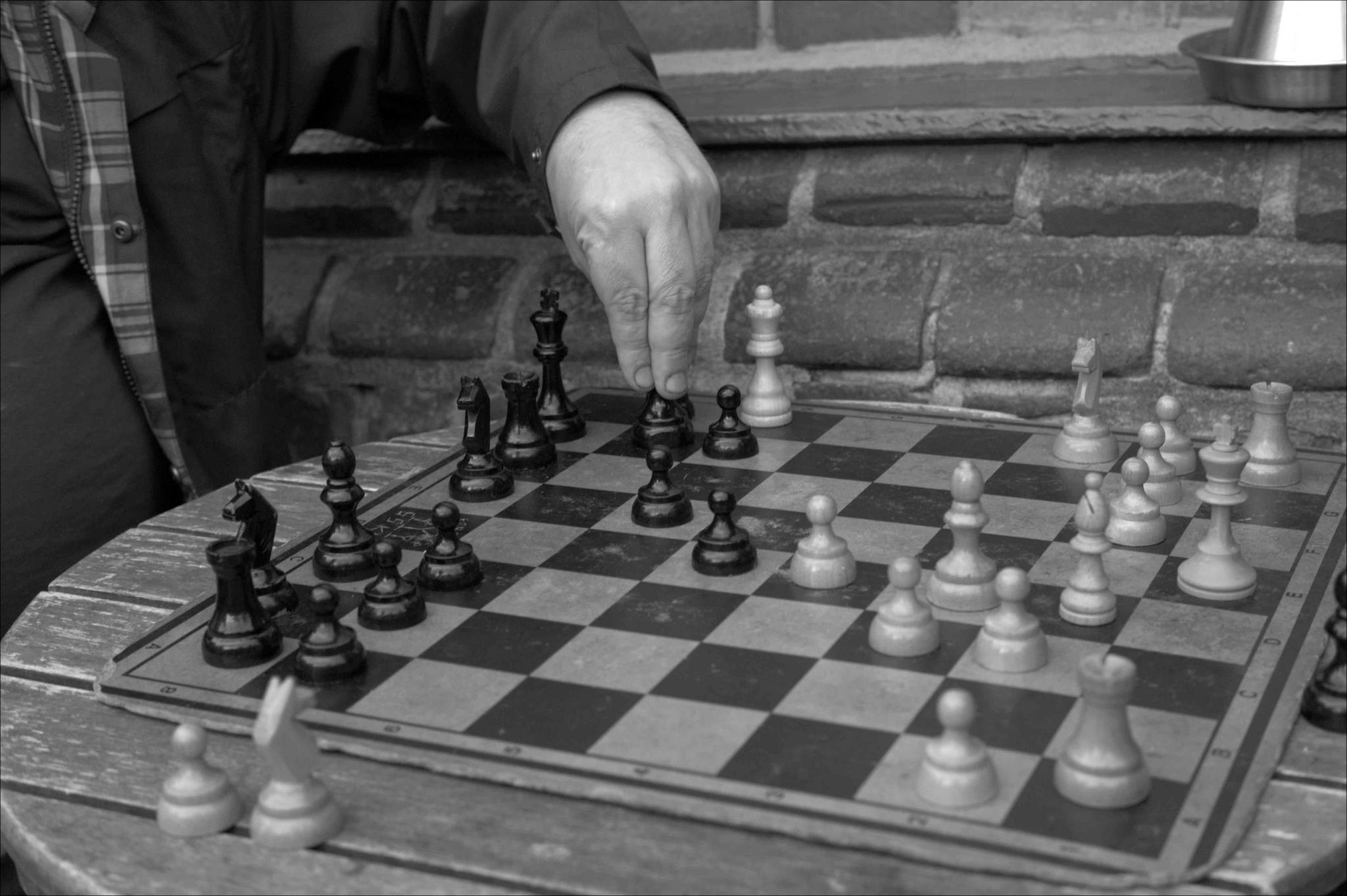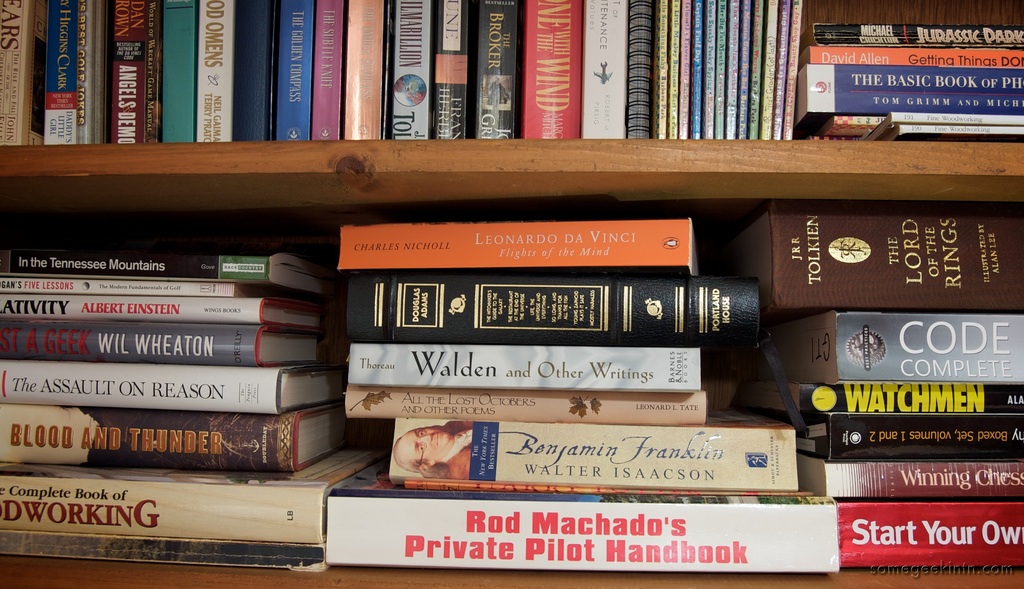Basically, any new skill you acquire, or simply honing an existing skill, learning a new piece of information and even discovering something new about yourself, are all factors that make you smarter in some way. The problem is, you don’t always get a chance to shine, so in the majority of cases we have no idea just how smart someone is. We can either assume someone is either smart or not-so-smart based on a series of experiences we’ve had with that person. In other words, do not try to be smarter in order to boast, it can easily backfire. You should seek knowledge for knowledge’s sake, and these following approaches will make that possible.
1. Find a hobby that’s right for you
Hobbies are a great form of escapism, and they can improve you and fulfill you at the same time. Therefore, you should devote your time to something that you find both interesting and challenging. There are many hobbies that encourage you to use a lot of brainpower, like playing chess, video games, solving crossword puzzles etc. These can provide amazing brain gymnastics, and even reward you with a sense of achievement. As far as gaining information and insight is concerned, there will be little progress in this department, but these are not the sole determiners of one’s wits.
2. Practice holistic learning
If you want to be a walking encyclopedia, you’ll have to master the art of holistic learning and use it whenever possible. This can come in handy if you are in college and trying to prepare for mid-terms and finals. Basically, holistic learning means you connect any new piece of information with something you already know. This means you need to think hard while learning, but, as a result, you get a solid database, which can turn out to be quite useful in the long run. The more you implement holistic learning, the more information you will gain with less and less studying. Your brain starts to turn into Wikipedia, and any topic slowly acquires more and more relevant links to it. There are many techniques that can help you master the art of holistic learning, and an author named Scott H Young did a pretty elaborate piece on the topic.
3. Let learning be your motivation
This is closely connected to the previous statement, however, the difference is that holistic learning is about being efficient at learning, and this is about learning to discipline yourself to crave new information. One thing that hinders our motivation to learn is the grading system. Sure, it was intended to motivate us, but we do not master every subject with ease. As mentioned, there are several types of intelligence, and none of us can excel in each field. Some are better at sports, others at music or math etc. However, a negative grade can be demotivating, and it makes us give up on something we could easily have found interesting. This is why I said you should gain knowledge for knowledge’s sake – if you flunked some subjects during your education, give them another shot, as every field of science has a lot to offer. You can check out the YouTube channel CrashCourse, or watch the first season of Cosmos – A Space Time Odyssey or Through the Wormhole. These are all amazing shows, and you will feel a lot better when you start to grasp some concepts that previously seemed too complex.
4. Admit when you do not know something
Maybe it’s just personal experience, but I feel that, due to peer pressure, we tend to behave like we know something, even though our insight in the matter is rather poor. And it makes no sense – why would someone judge you for not knowing how to do something, or not knowing a certain fact? However, we do feel like we are looked down upon, so we try to act “cool”. As a result, we only risk making a bigger fool of ourselves than we would by simply saying “Sorry, I don’t think I know what you are talking about.” If you don’t know something, but want to learn about it, why pretend in the first place? And if you are not interested in the topic, why pretend that you are?
5. Don’t make reckless decisions
Now, you should not be the ultimate prude, and compulsively create scenarios before you make a minor decision. That kind of thinking will eat away at you, and cause a lot of stress. However, there are decisions that we can make on a whim, or in the heat of the moment. There are also things that drastically change the status quo in your life, and even though they are a necessity, you should think long and hard before rushing into these decisions. For example people are prone to get into debt in order to create the wedding of their dreams. If the happiest day of your life causes so many issues down the road, then it will only turn into a bad memory. You can always have a decent wedding now, and if you have enough resources some day, you can throw a party to adequately celebrate your marriage. Moreover, decisions to change your job, or entire career can be classified as reckless, so take as much time as you need to dwell on those thoughts before deciding to make the next step.
6. Make lists
If you want to grow into a smarter individual, you need to have your own definition of smart. What kind of skills would you need, what kind of goals do you need to achieve, and what do you need to experience in order to stand out from the crowd. In other words, make lists. The list should contain everything you need to create the perfect version of yourself. It’s not a project that should be completed, rather it’s something you need to continually improve upon.
7. Read books
Finally, the best way to become smarter is to read books on an everyday basis. Even reading an instruction manual makes you smarter, let alone a quality masterpiece. You can do some research on a website called Goodreads, and find a book that is perfectly suited to your needs and sensibilities. It is perfect for both intellectual and spiritual growth, and if you have attention span problems then you can always get an audio version, and follow the text as the voice actor reads the piece. That’s what I do, at least. Books are definitely the whole package when it comes to becoming smarter – you have a good story, you learn something new and, very often, adopt a better perspective on things.






